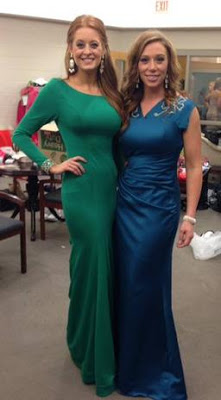The standards governing what is considered modest and what is not considered modest may vary from one culture or society to another. In general, when speaking about the way males and females dress, “modesty” can be defined as that mode of dress or behavior intended to avoid encouraging sexual attraction in others. When used in this sense, it can be considered inappropriate or immodest to reveal certain parts of the body.
In some societies, modesty may involve women covering their bodies completely and not talking to men who are not immediate family members. In other societies, a fairly revealing, but one-piece bathing suit is considered modest, while other women may wear bikinis. Even nudity at times is tolerated in some societies; for example, during a world naked bike ride which took place in San Francisco, London, Madrid, Amsterdam and Guadalajara in June 2012, while a lone man attempting to walk naked through his neighborhood would find himself incarcerated for indecent exposure. In his April 1992 General Conference address titled “Our Moral Environment,” President Boyd K. Packer taught:
The rapid, sweeping deterioration of values is characterized by a preoccupation–even an obsession–with the procreative act. Abstinence before marriage and fidelity within it are openly scoffed at–marriage and parenthood ridiculed as burdensome, unnecessary. Modesty, a virtue of a refined individual or society, is all but gone.
Remaining True to Standards of Modesty at All Times
In his 8 October 1988 General Conference address titled “Train up a Child,” Elder L. Tom Perry commented:
President Kimball delivered a great talk many years ago at Brigham Young University entitled ‘A Style of Our Own.’ He encouraged us not to be among those who would follow worldly, immodest styles, but to have the courage to dress in a way which will send a message that our standards are different. Our dress will reflect the way we intend to live, founded on principles of the gospel of our Lord and Savior. It is impossible to expect a child who has been taught to love to dress in the immodest style trends of the day, to then change overnight to an entirely different wardrobe when they enter a Church university or a missionary training center, or when they are married in the temple, or even when they dress for the Sabbath day. Modest, proper styles must be taught almost from birth.
 Bekah Pence, the 29-year-old returned missionary for The Church of Jesus Christ of Latter-day Saints who competed in the Ms. Virginia United States competition in April 2015 and won, is a role model to many as she remains true to her personal standards of modesty. During the competition, she was tenacious in her search for formal wear that she considered appropriate.
Bekah Pence, the 29-year-old returned missionary for The Church of Jesus Christ of Latter-day Saints who competed in the Ms. Virginia United States competition in April 2015 and won, is a role model to many as she remains true to her personal standards of modesty. During the competition, she was tenacious in her search for formal wear that she considered appropriate.
Her standards were put to the test once again when she competed in the Ms. United States pageant for women ages 26 to 39 which was held in Washington, D.C. on 3 July 2015. While preparing to compete, she learned of three mandatory outfits that she did not feel comfortable wearing and was resolute that she would only compete if the outfits could be altered to align with her standards. As a result, many were impacted because of her tenacity, and her example even gave another contestant the courage to compete. In a 15 July 2015 Deseret News article, Pence commented:
I think something that was reiterated or came through more strongly this time around is just not being afraid to keep your standards because you never know how it will affect someone. Sometimes (LDS Church) members just don’t realize that personally deciding to keep the commandments, it literally directly impacts others.
Pence hoped that exceptions might be made and turned to her director who approached the national directors of the Ms. United States pageant. When asked why she could not wear the outfits that had been selected, she stood her ground and explained that she believed in dressing more conservatively. The national directors told her that alterations were not allowed, and it was then that she turned to prayer and scripture study, believing that as long as she maintained her standards and beliefs, everything would work out in the end. She stated, “I was afraid that they were going to possibly turn me away or disqualify me. But my director made it very clear that she and her director partner were going to help me in any way they could.”
 President Gordon B. Hinckley taught, “In matters of dress we wish neither silk nor rags. We seek for the clean look, call it a wholesome look, the bright and happy look of young men and women who walk with a sense of who they are, of what is expected of them, and of what they may become” (President. Hinckley, Church News, 22 October 1994, “Behavior Code” Modesty). As Pence was devising a plan, she learned that another contestant, Afton Liddell from Idaho, also a member of The Church of Jesus Christ, was also concerned about the mandatory attire. The two women each approached the national directors and asked to alter the mandatory outfits. Realizing that another contestant also had concerns about the outfits, the directors became more willing to find a way to make it an option to have the wardrobe altered. Pence stated, “It was just a miracle. People don’t realize that there is power in simply keeping the commandments. There is power in numbers, and it makes it easier for other members to keep their standards.”
President Gordon B. Hinckley taught, “In matters of dress we wish neither silk nor rags. We seek for the clean look, call it a wholesome look, the bright and happy look of young men and women who walk with a sense of who they are, of what is expected of them, and of what they may become” (President. Hinckley, Church News, 22 October 1994, “Behavior Code” Modesty). As Pence was devising a plan, she learned that another contestant, Afton Liddell from Idaho, also a member of The Church of Jesus Christ, was also concerned about the mandatory attire. The two women each approached the national directors and asked to alter the mandatory outfits. Realizing that another contestant also had concerns about the outfits, the directors became more willing to find a way to make it an option to have the wardrobe altered. Pence stated, “It was just a miracle. People don’t realize that there is power in simply keeping the commandments. There is power in numbers, and it makes it easier for other members to keep their standards.”
According to the Deseret News article:
The opening-number outfits were mailed to Pence and Liddell, and they adjusted the dresses. The women also had swimsuits made that resembled the original suits. When preparing for the fashion show, Pence and Liddell submitted additional measurements that would ensure the dresses met their standards.
Be Thou an Example
Liddell said that it was because of Pence’s example that she felt comfortable competing in the pageant. In an email interview she commented, “She’s a great example. We had a riot figuring out how to make everything modest. Thankfully, we had each other to support the cause. There’s strength in numbers, even when that number is two.” She further commented, “”I am so grateful that Bekah listens to the Spirit. Her faithful adherence to her standards and the promptings of the Holy Ghost have already had a tremendous ripple effect and will continue to so do beyond what any of us can begin to imagine.”
Altering the outfits also gave the women an opportunity share their beliefs with other contestants.
Keith L. Brown is a convert to The Church of Jesus Christ of Latter-day Saints, having been born and raised Baptist. He was studying to be a Baptist minister at the time of his conversion to the LDS faith. He was baptized on 10 March 1998 in Reykjavik, Iceland while serving on active duty in the United States Navy in Keflavic, Iceland. He currently serves as the First Assistant to the High Priest Group for the Annapolis, Maryland Ward. He is a 30-year honorably retired United States Navy Veteran.



